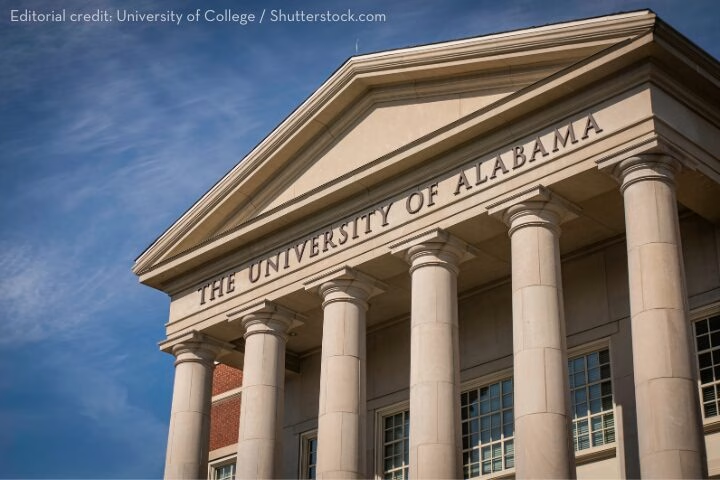This February, I wrote about the growing trend of legislators targeting academic programs based on their so-called “return on investment” (ROI). In testimony before the Iowa House Higher Education Committee in January, Neetu Arnold of the Manhattan Institute argued that academic programs that give students a “negative” return on investment should be targeted when universities are looking to cut their budget. In fact, she argued that legislators themselves should go after those academic programs. Her targets? Women’s and Gender Studies, History, English–programs she claims aren’t worth the cost.
These ‘Return on Investment’ arguments are a Red Herring—censorship dressed up as fiscal responsibility. It’s a thinly veiled attempt to control what students can study and what ideas are allowed to thrive on campus. Programs such as Women’s and Gender studies, American and ethnic studies, History, English and Theater are being targeted not because they fail to pay off, but because they encourage critical thinking that can be challenging to those in power.
As they blatantly target academic programs in the “humanities,” what these legislators tend to leave out of their discussions of Return on Investment, is that humanities graduates generally fare about as well as other college graduates in terms of employment. According to the Humanities Indicators in 2018, the unemployment rate for humanities majors who held only a Bachelor’s degree was 3.6%. This is not much higher than the unemployment rate for all graduates who held only a Bachelor’s degree (2.9%) and almost two points lower than the unemployment rate for all Americans aged 25 to 64 who completed high school but did not attend college (5.3%). When you look at graduates who hold advanced degrees, the differences in unemployment between those who attended higher education gets even smaller. Among people who received a bachelor’s degree in the humanities and then earned an advanced degree (in any field), the unemployment rate was 2.4%. This is only slightly above the 2.1% rate among all graduates who had earned an advanced degree, regardless of field. These statistics confound the claims about ‘return on investment’ as a serious measure of the value of degrees in humanities fields.
Additionally, according to a 2014 AAC&U report, by mid-career, humanities majors have been shown to be employed at similar rates to those who studied professional or pre-professional degrees. The differences between the unemployment rates for those who hold humanities degrees and those who hold other degrees does not seem reason enough to shutter entire academic programs, or, as was the case in Iowa, for legislators to urge the Board of Regents to reject the University of Iowa’s plans for an entire new academic division, the School of Social and Cultural Analysis.
When two Iowa Legislators, Representative Taylor Collins and Senator Lynn Evans, urged the Board of Regents to reject that proposed division at the state’s flagship university, they wrote, “Iowans expect our institutions of higher education to be focused on providing for the workforce needs of the state, not programs that are focused on peddling ideological agendas.”
But humanities degree holders are and have been contributing to the workforce needs of their states—in Iowa and nationwide. In Iowa, 40% of those who work at Iowa Museums and Libraries hold degrees in the humanities. So do 22% of college graduates who work in the legal profession. In Iowa, to support the humanities is to support Iowa’s museums, its libraries, its attorneys, and its professionals. The same is true in other states. Nationally, humanities, arts, and physical science majors are the most likely (aside from education majors) to go into education careers. Supporting the humanities supports our country’s future teachers, too.
The Return on Investment framework reduces the value of education to a paycheck. What it ignores is that humanities and liberal arts majors often go into fields that, while they may not pay as well as medicine or computer science, are integral to culture, to preserving history, and to educating the next generation. What’s more, liberal arts and humanities education itself creates well-rounded and thoughtful citizens—no matter their career paths. Legislators are either not thinking about, or are willfully ignoring, the impact that the humanities have on students–and that has to be part of any honest discussion of the true return on educational investment.
Legislators who target academic programs based on their ROI are using the term as a smokescreen. They hide behind language that sounds like they have the best interest of the students or the populace at heart. In reality, they are wielding their power to censor—to forbid students from learning about history, literature, philosophy, and theater.
This is not about students getting a good “return on investment” or about the workforce needs of the state being met. It’s about ideas—and isn’t that the real threat? Not that students might study something “useless,” but that they might study something powerful that equips them to be critical and informed citizens. Students are more than capable of making educated choices about their careers and their futures. Those are personal decisions and not for legislators to decide.











